Do Dogs Chew Their Food? (Explained)
Have you ever watched your dog at mealtime only to see them scarfing down their kibble like they have been starving for weeks? Do you find it hard to believe they’re chewing before swallowing when they eat this fast? If you’ve ever wondered, “Do dogs chew their food?” you’ve come to the right place!
Most dogs do not chew their food, at least not as much as humans have to, in order not to choke. This article will explain everything you need to know about dogs chewing their food. The first section will cover some of the biological reasons for this behavior.
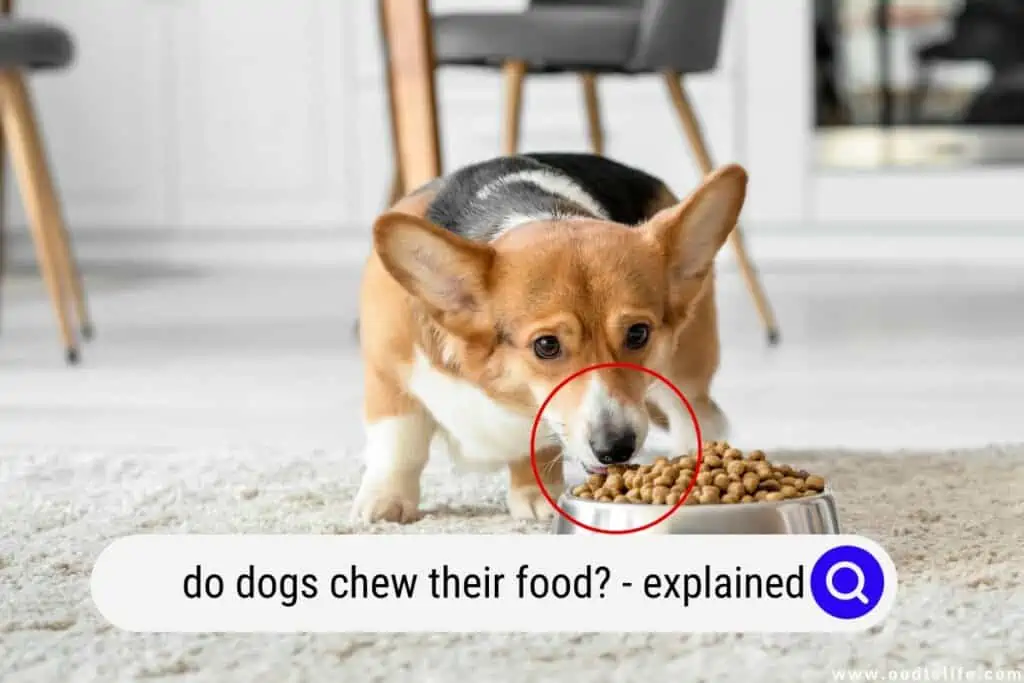
In later sections we will examine potential issues and solutions to dogs eating too fast without chewing.
By the end of this article, you will have plenty of information to chew on! Read on to learn more!
Dogs Evolved To Not Chew Their Food
Domestic dogs who eat out of bowls descended from wild dogs and wolves who ate off the ground. Despite their very different lifestyles, some behaviors from their wild ancestors have carried over into how our pet dogs consume their meals.
The Need For Speed
In the wild, dogs often had to compete with one another for enough food. Eating fast was one way to ensure they got to finish their meals without them getting stolen. Wild dogs are not able to savor or ruminate over their meals without losing them to another member of the pack or a scavenger.
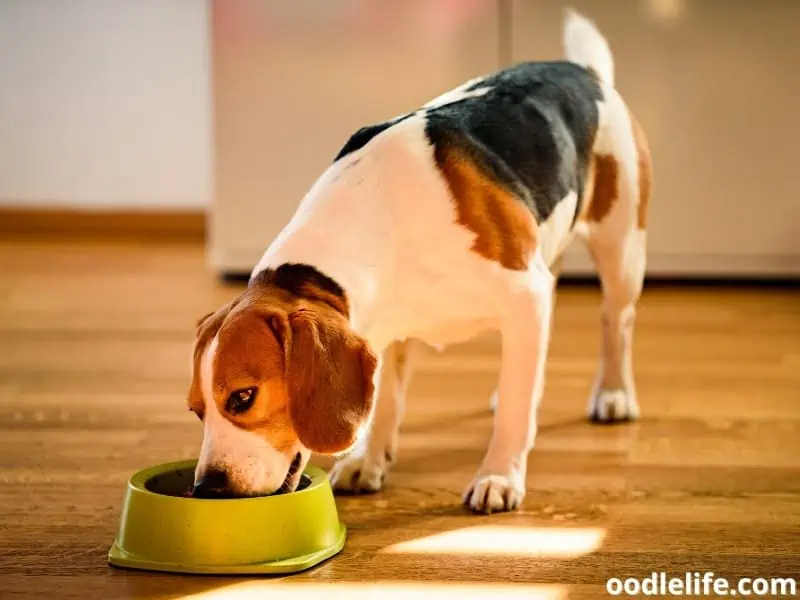
In survival of the fittest, taking the time to chew means you go hungry.
Different Biology: Teeth
As humans, we can’t swallow our food whole without choking. We have molars (our back teeth) specifically designed for breaking down food into a mash of small pieces. Dogs’ mouths are built differently than ours are, though.
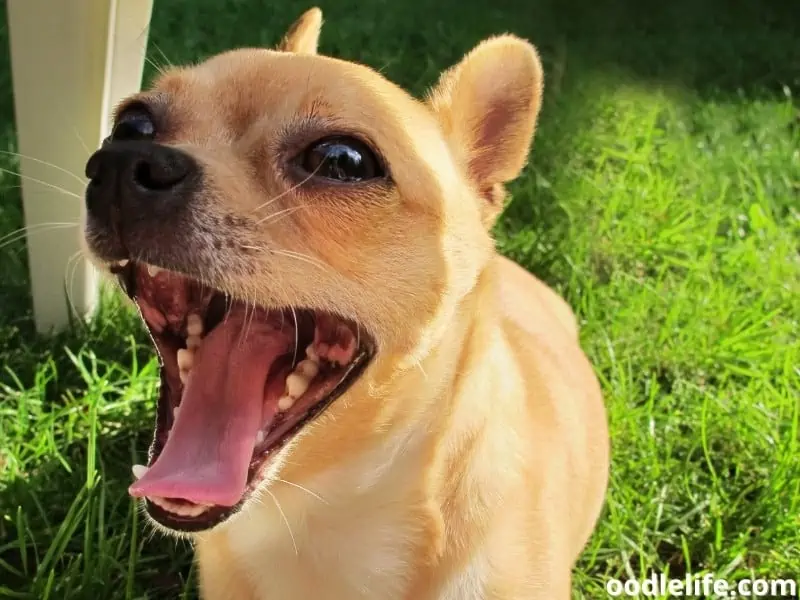
Dogs do have molars, but most of the teeth in their mouths are canines and incisors, which are built for biting, tearing, and ripping rather than chewing. Additionally, their throats are able to stretch out to swallow bigger chunks of food at a time.
However, since they live with us in homes rather than in packs in the wilderness, our pet dogs can develop a few issues if they are constantly eating too fast. The following section will go into detail about some of these problems and provide some recommendations for solutions.
When It Is Bad To Eat Too Fast?
This information might lead you to ask, “Do dogs need to chew their food?” Most of the time, your dog eating quickly without chewing will not be an issue for their physical or mental health. In this section, we will cover some of the reasons why you might want to encourage slower eating.
You Are Feeding Multiple Dogs At Once
If you have more than one dog in your home “pack,” they may start to develop the mindset of being a pack in the great outdoors. Even if your dogs get along wonderfully in other areas, mealtime might still be creating anxiety. If one or more of your dogs is behaving anxiously around meals, they may be worried about having their food stolen from them.
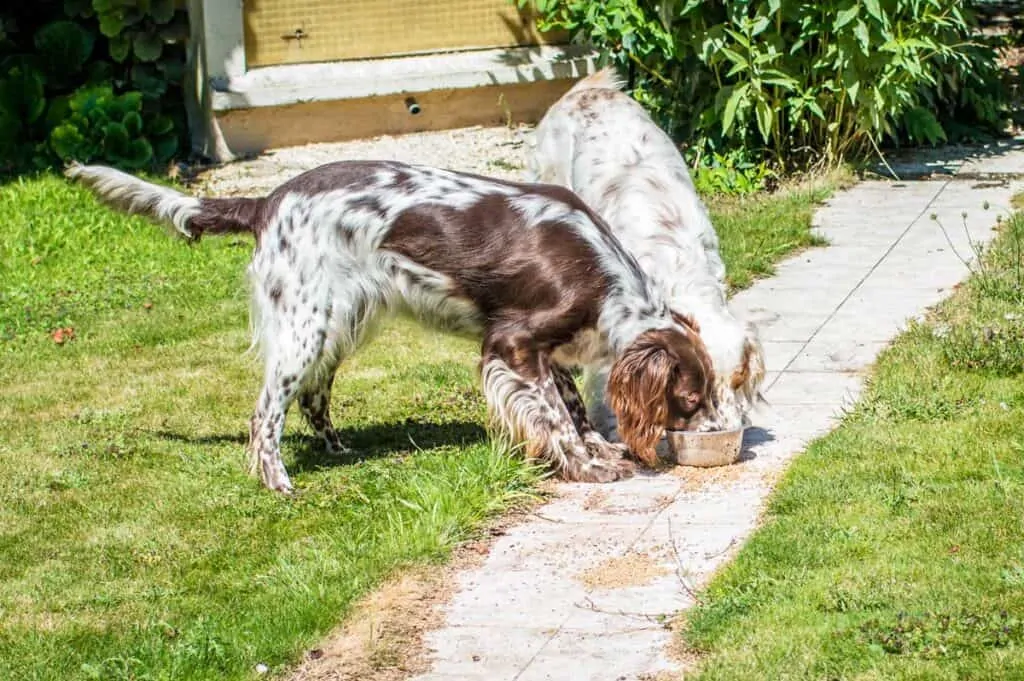
To appease them, try to feed your pets in separate rooms and create a calm environment for eating. Giving them a quiet, isolated space to eat will help them from feeling the drive of competition that causes them to scarf down food too quickly.
While free feeding is not always a beneficial option for dogs because of the potential to gain too much weight, it may be worth testing out if your dogs feel they are competing for food. A permanently full food bowl can help eliminate the scarcity mindset and let them know that resources are abundant.
Your Dog Is Vomiting After Meals
Eating quickly or without chewing is not a huge problem unless you notice your dog is vomiting immediately after eating. If you see this behavior regularly, you will need to find a way to slow them down. Luckily, there are many vet-approved ways to encourage dogs to take more time with their meals.

Here are a few of our favorite strategies!
- A slow feeder is a bowl or object designed to do just what the name suggests: help your dog eat more slowly. These bowls often have ridges or other kinds of obstructions that make it more difficult for your dog to eat. In addition to helping them not eat so quickly, slow feeders provide mental stimulation for your dogs’ brains!
- Switching to wet food or even wetting your dog’s kibble is another simple strategy that will help them not eat so fast. Wet food is more challenging to pick up than dry pieces of kibble, so they will naturally eat slower. Additionally, wet food has an easier time going down their esophagus, so they are less likely to vomit it up.
To Prevent Serious Illness
In giant dog breeds, such as Great Danes, Bernese Mountain Dogs, and Mastiffs, bloat is a result of overeating too quickly, which can pose a life-threatening issue. The medical term for this condition is Gastric Dilatation-Volvulus (or GDV). It occurs when your dog’s stomach fills with gas or food too quickly and twists or flips upside down on itself.
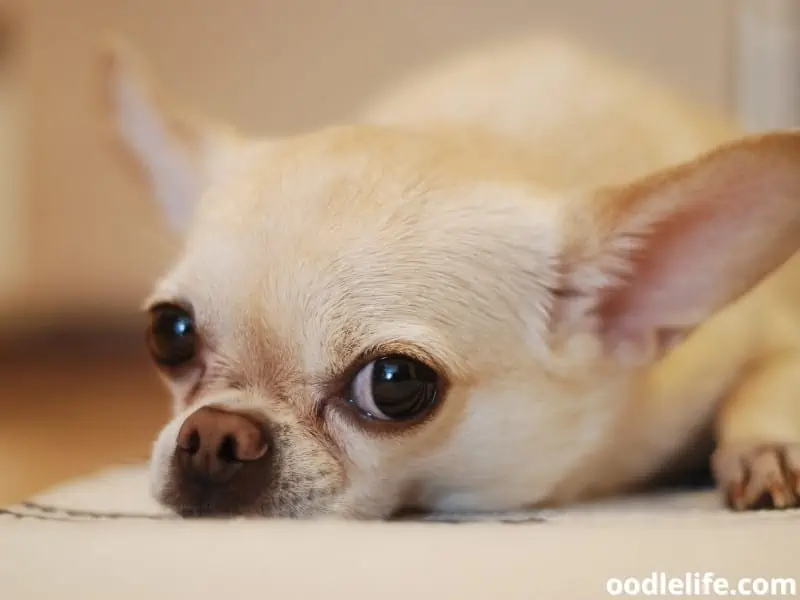
Left untreated, bloat can be fatal in dogs. If you suspect your dog might be experiencing bloat, they need immediate emergency medical care. Symptoms of bloat include a distended abdomen, retching, excessive drooling, restlessness, and panting.
One of the best ways to prevent bloat after eating is to make sure your dog doesn’t eat a large portion of food all at once. Split their daily caloric intake into 2 or 3 smaller meals per day. Using an interactive dog bowl (slow feeder) or combination of wet and dry food can also help make sure they don’t eat too fast and put themselves in danger.
Final Thoughts: Do Dogs Chew Their Food?
Most dogs don’t swallow their food completely whole, but they also don’t chew as much as we humans do either. As long as your dog isn’t food aggressive or vomiting after eating meals, you shouldn’t have to worry about them chewing their food.